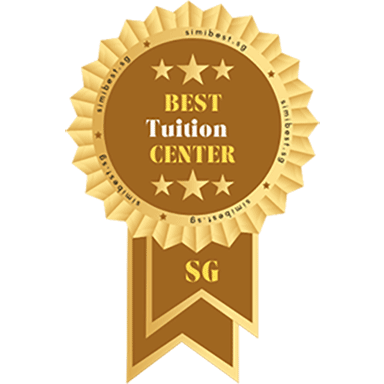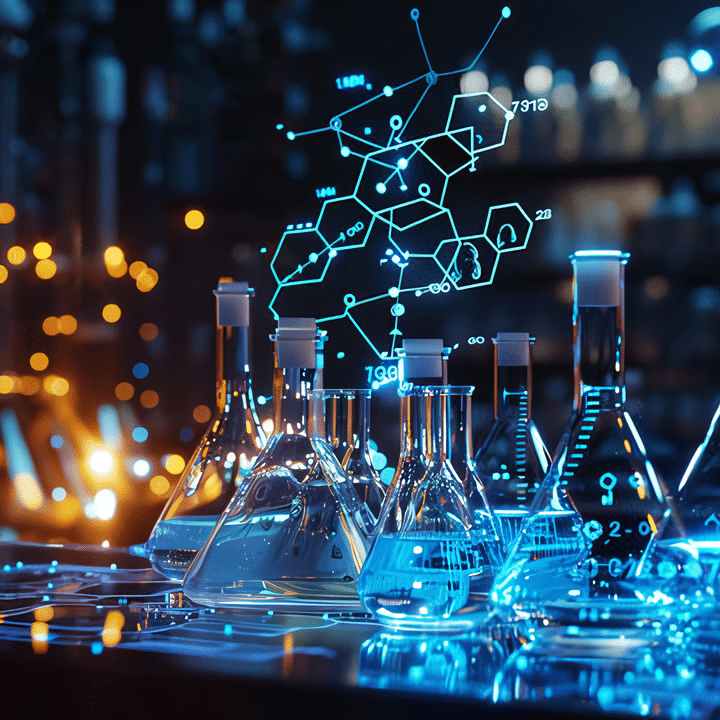Primary Science Tuition @ Woodlands
At APMC Learning Centre, our Primary Science Tuition program builds a strong foundation in essential scientific concepts. We cover key topics, including Cycles, Systems, Interactions, Energy, and Diversity. Our engaging lessons incorporate hands-on activities and real-world examples to spark curiosity. Experienced tutors adapt teaching methods to suit each student’s learning style. This promotes critical thinking and exploration of various concepts. Additionally, our program emphasizes problem-solving skills, empowering students to apply science beyond the classroom. With small class sizes, students receive personalized attention and support. This allows them to ask questions and deepen their understanding effectively. Through interactive Primary Science Tuition, we prepare students for advanced topics they will encounter in secondary school. Join us at APMC Learning Centre, where we cultivate a love for learning and equip students for academic success in Primary Science.

Students Taught
Record Improvements
Subjects for all levels
Years Established
Primary Science Tuition @ Woodlands Centre
Let's Learn Like a Pro!
During our primary science tuition programme, students will experience a dynamic learning environment designed to foster independence and critical thinking skills, allowing them to “Learn Like a Pro.” Our expert tutors provide personalized guidance and effective strategies, ensuring that each student masters key concepts and approaches their studies with confidence and professionalism.
Student & Parent Reviews of Our Woodlands Tutoring Centre
At our Woodlands tuition centre, we’re proud to receive feedback from both students and parents who have seen remarkable progress. These testimonials reflect the supportive and results-driven environment we create at our tutoring center in Woodlands, where experienced educators provide personalized guidance. Discover how our programs have helped students gain confidence, improve their academic performance, and achieve their goals.
Primary Science Tuition Curriculum
Primary 3 & 4
Classification Overview
- Methods of Classification
- Techniques for categorizing living and non-living things.
Living and Non-living Things
- Living Organisms
- Characteristics that distinguish living things.
- Plants
- Categories based on characteristics.
- Plant Parts
- Structure and function of roots, stems, and leaves.
- Animals
- Types include mammals, birds, insects, fish, reptiles, and amphibians.
- Fungi and Bacteria
- Fungi
- Uses and harmful effects.
- Bacteria
- Characteristics, uses, and harmfulness.
- Fungi
Materials
- Properties
- Physical and chemical characteristics of common materials.
Human Body Systems
- Body Systems
- Parts and functions of the circulatory, respiratory, muscular, and skeletal systems.
- Functions of the digestive system.
Plant Systems
- Parts and Functions
- Overview of plant systems.
Magnets
- Magnetic Properties
- Comparing strengths and understanding temporary magnets.
- Loss of magnetic strength.
Life Cycles
- Plants
- Stages of the life cycle, seed and seedling functions, germination conditions.
- Animals
- Three-staged and four-staged life cycles with characteristics of each stage.
Matter
- Properties
- States of matter and their properties.
- Displacement of matter.
Heat
- Sources and Transfer
- Methods of heat transfer: conduction, convection, and radiation.
- Effects and energy of heat.
Light
- Light Sources
- Properties, transmission, and factors affecting shadow formation.
Primary 5 & 6
Plant Transport System
- Parts and Functions
- Overview of plant transport structures and their roles.
Respiratory System
- Parts and Functions
- Structure and roles of respiratory components.
- Breathing Processes
- Inhalation and exhalation.
- Effects of Exercise
- Impact on breathing rate.
- Comparative Systems
- Human vs. fish respiratory systems.
Circulatory System
- Functions
- Overview of circulatory system roles.
- Blood Flow
- Pathways of blood circulation.
- Effects of Exercise
- Impact on heart rate.
- Comparative Systems
- Human vs. fish circulatory systems.
Cells
- Parts and Functions
- Structure and roles of plant and animal cells.
- Types of Cells
- Different categories of cells.
- Unicellular Organisms
- Characteristics and examples.
Electrical System
- Conductors and Insulators
- Differences and examples.
- Electric Circuit
- Basic components and arrangement.
- Circuit Card
- Functionality and design.
- Electromagnets
- Overview and applications.
- Safety Precautions
- Guidelines for electrical safety.
- Conservation of Electricity
- Tips and methods for saving energy.
Water and Changes of State
- States of Water
- Melting, boiling, evaporation, freezing, and condensation.
- Water Cycle
- Overview of the cycle's processes.
Water Uses and Conservation
- Conservation Methods
- Strategies for saving water.
- Pollution Types
- Different forms of water pollution.
Reproduction and Heredity
- Human Reproductive Systems
- Parts and functions of male and female systems.
- Fertilization Process
- Overview of fertilization.
- Heredity
- Concepts related to heredity and family trees.
Reproduction in Plants
- Flower Structure
- Parts and functions of flowers.
- Reproductive Processes
- Pollination, fertilization, and seed dispersal.
Sources and Forms of Energy
- Energy Sources
- Different sources of energy.
- Energy Forms
- Various types of energy.
- Conversion and Transfer
- Processes involved in energy conversion.
Energy and the Sun
- Photosynthesis Process
- Overview of photosynthesis.
- Influencing Factors
- Factors that affect photosynthesis efficiency.
Forces
- Types of Forces
- Categories of forces in physics.
- Effects of Forces
- How forces impact objects and systems.
Environment
- Non-living Factors
- Elements of the environment that are abiotic.
- Living Factors
- Biotic components of the environment.
- Organization
- Structuring of habitats and communities.
Environmental Interactions
- Food Chains and Webs
- Overview of energy transfer and relationships.
- Population Dynamics
- Effects of population changes on food webs.
- Decomposition
- Role of decomposers in ecosystems.
Adapting to the Environment
- Survival Adaptations
- How organisms adapt to environments.
- Food Acquisition
- Strategies for obtaining food.
- Predator Avoidance
- Adaptations to escape predators.
People and the Environment
- Natural Resource Depletion
- Impact of human activity on resources.
- Pollution Issues
- Overview of various pollution types.
- Environmental Degradation
- Effects of deforestation, soil erosion, and greenhouse gases.
Primary Science Tuition Highlights
Content Mastery
- Starting primary 3, students will be introduced to a range of topics including diversity. They will learn about the key characteristics of animals, plants, fungi, bacteria, and materials, and identify the relevant properties of material through experiment videos and virtual experiments. Topics such as life cycles, plant and human body systems, and magnets will also be covered in the Primary 3 curriculum.
- Next in primary 4, students master the abstract concepts of matter, light and heat, while observing the displacement of matter and identifying properties of light through experiment videos. Additionally, learners will revise topics such as diversity, life cycles, systems, and magnets.
- Following primary 5 students will learn new topics such as water and changes of state, reproduction, cells and electrical system and deepen their understanding of concepts through experiment videos and virtual experiments.
- Finaly in primary 6, students will learn new topics such as forces, sources and forms of energy, and environment and practice applying critical answering techniques to provide complete answers. To prepare for the PSLE, students will systematically revise all topics from Primary 3 to Primary 6.
Skills and Techniques
- Students will learn to support their answers by gathering and using information from tables, flowcharts, classification charts, and bar graphs.
- With guidance from our teachers, they will develop the skill to formulate responses by identifying relevant properties in experimental setups.
- Students will learn to establish relationships between variables based on experimental results.
- They will encounter application questions requiring them to tackle unfamiliar contexts using concepts they have studied.
- Additionally, they will practice common experiment-based questions, incorporating appropriate scientific terminology in their responses.
- Students will analyze experimental setups, recognizing how controlled variables ensure fairness and their intended purpose.
- They will raise awareness of common pitfalls and learn to analyze them to avoid unnecessary mark loss.
- Extensive practice with application questions will help students approach unfamiliar contexts confidently.
- Finally, they will refine their exam techniques through multiple mock examinations, receiving feedback to fully understand exam requirements.
Revision and Reinforcement
- Towards Mid or PSLE Exam, APM's Science Tuition focuses on revising and mastering all the topics through practice tests and revision handouts, which include questions that test foundational knowledge and examination questions
- Hone key examination skills such as time management and error analysis with practices on specific question types
Key Benefits of our Primary Science Tuition
With a student-centered approach, APMC Learning Centre delivers a range of unique benefits at our Woodlands tuition centre. By maintaining small class sizes, we provide personalized attention to every student, allowing our experienced tutors to adapt lessons to suit individual learning styles and needs. Our curriculum aligns closely with school syllabuses, reinforcing what students learn in class and effectively bridging any knowledge gaps. This structure builds a solid academic foundation while helping students develop confidence in their abilities. Through engaging, interactive lessons, we focus on fostering essential skills such as critical thinking, problem-solving, and analytical reasoning, preparing students not only for exams but also for lifelong learning. With over 20 years of educational expertise, we offer specialized programs in math, physics, chemistry, and primary science, all in a supportive, motivating environment. As a trusted Woodlands tuition centre, we are committed to empowering students to excel and reach their full potential.
Small Class Size
Personalized Attention
Tailored Learning
Customized Coaching
Personalized Guidance
Targeted Improvement
Hones Exam Techniques
Time Management Skills
Precision Answering Skills
Structured Curriculum
Clear Learning Path
Tailored Materials
Expert Guidance
Experienced Tutors
Dual Tutor System
Tailored Support
Our Achievements: Trusted Excellence in Primary Science Tuition
Trusted by Families: Our primary science tutoring center in Woodlands is known for excellence and results-driven education. These badges reflect the confidence students and parents place in us and the achievements that set our center apart as a leader in education.
Professional Teachers Specialising Primary School Science Tuition
Tutors
At APMC Learning Centre, our tutors are highly qualified professionals with over 20 years of experience in subjects like Primary school science tuition and math. They are committed to providing personalized instruction tailored to each student's unique needs, ensuring effective learning and mastery of key concepts. With a passion for education, our tutors employ engaging teaching methods that foster critical thinking and problem-solving skills. By creating a supportive and interactive environment, they empower students to excel academically and develop a lifelong love for learning. Our primary science tuition program, in particular, helps students build confidence and achieve success in mathematics.
Subjects Offered @ our Woodlands Tuition Centre
At our Woodlands tuition centre, we offer expert tuition tailored to students at every academic level, from Primary to Junior College. Browse the sections below to explore the subjects we cover and discover how our experienced tutors help students excel at each stage of their learning journey.






























